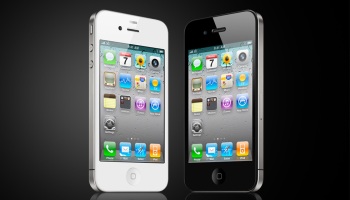While the iPhone 4 has been a success with critics and consumers—call reception issues aside—Apple’s newest smartphone may pose the same problems for mobile carriers that earlier iPhone models have, Strand Consult said in a 5 July report.
The Copenhagen-based research company—following up on an August 2009 report on how the iPhone affected carriers—warned that the industry “will once again perhaps experience mobile operators issuing profit warnings due to large subsidies for the new iPhone 4.” Consequently, it offered six points for carriers to consider when evaluating the iPhone 4 from a financial perspective.
First, the report pointed out, pricing on the iPhone 4 doesn’t vary from that of earlier models, offering no additional incentive for purchase. Second, Strand Consult finds the redesigned phone to be not so far from its predecessor—similarly not creating a major purchasing incentive. And third, the research company said it believes the iPhone 4 won’t be sending droves of new customers to carrier doorsteps. ”Almost everyone who purchases a new iPhone,” the report stated, “will be existing iPhone users.”
Upgrading iPhones
Following on that, there is the question of the effect that large numbers of existing customers upgrading their iPhones, as opposed to new customers making purchases, will have on mobile operators.
The report said, “The answer is that the new iPhone 4 will negatively stimulate the operators’ churn and result in operators’ costs for subsidies and dealer commissions rocketing sky-high.” In its earlier report, Strand Consult likewise found the impact of the iPhone to be a negative—and not just for select carriers, but across the board. ”According to the research we have conducted on the operators, not one of these has increased their market share, revenue or their earnings as a result of introducing the iPhone,” the 2009 report stated. “On the contrary, some operators have sent out profit warnings because of the iPhone.”
Apple, however, isn’t the only company set to benefit from the iPhone 4, according to Strand Consult. While the iPhone puts the pinch on traditional carriers, as customers upgrade to new handsets and hand off older models to friends and family, it may benefit MVNOs (mobile virtual network operators), which sell SIM (Subscriber Identity Module) cards under their own brands while leasing network spectrum from larger operators.
New users of older iPhones “will purchase their voice and data where it is cheapest, and in many countries that will be from a no-frills MVNO that sells SIM-only products to iPhone users,” the report said.
Strand Consult’s final point was that while Apple is largely considered the industry king of the mountain, with the smartphone to beat, the attention lavished on the company is disproportionate to its market share. ”The total number of iPhone users in the world today is about the same as the number of people holding a Polish passport.
During a period where the global market has grown by 1.1 billion users, Apple only sold 51 million mobile phones, while the other manufacturers sold over 3.4 billion phones,” the report said.
Expensive New Friend
It went on to say the iPhone 4, in the end, may wind up being “an expensive new friend” for many operators—not good news for AT&T, currently the only U.S. provider of the iPhone. Verizon Wireless, which is expected to offer an iPhone in January 2011, when AT&T’s exclusivity contract expires, may, for now, be in the clear.
“We believe that the larger and older a mobile operator’s iPhone customer base is, the more costs they will have from the iPhone 4,” Strand Consult concluded. “We are certain that many of Apple’s original and largest partners will experience an explosion in churn and that the money they will need to spend on subsidies and dealer commissions will have a negative influence on their revenue during the coming months.”





